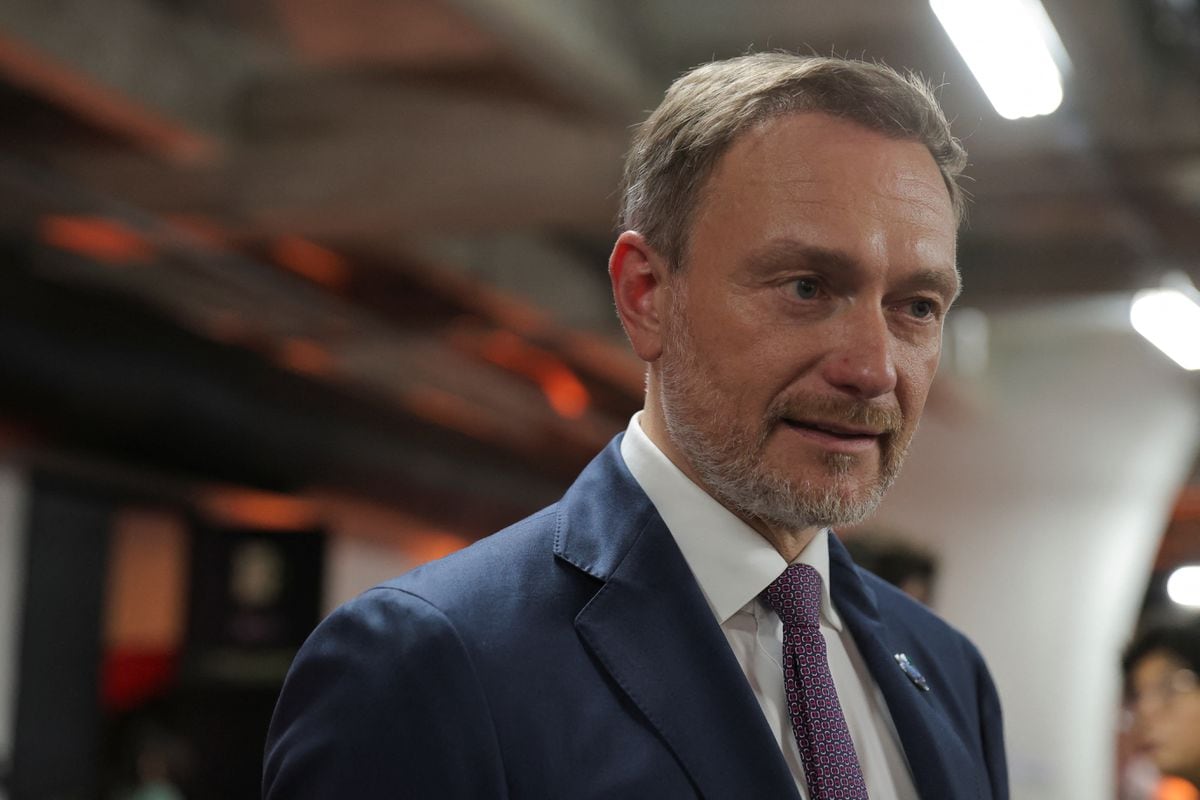Enlarge image
Christian Lindner: Proposals as part of a larger overall concept
Photo: SASCHA STEINBACH / EPA
Chancellor Olaf Scholz (SPD) has expressed "fundamental goodwill" for the tax plans of Finance Minister Christian Lindner (FDP).
A government spokesman made it clear that the plans should be seen as part of a larger overall concept that should be developed in the coming weeks in view of the immense cost increases, for example for energy.
The departmental vote is now beginning, the spokesman said.
The concept will be developed in such a way that it will find the necessary support from the cabinet.
He referred to Scholz's statements that citizens should not be left alone with the rising prices.
Lindner had presented plans to compensate for the cold progression.
Politicians from the coalition partners SPD and Greens had described them as socially unbalanced.
Cold progression is a kind of creeping tax increase when the purchasing power of salary increases is eaten up by inflation, but the nominally higher salary still leads to higher taxation.
In his previous position as finance minister, Scholz corrected the cold progression twice, his spokesman said.
Overall, Lindner's proposals met with a mixed response:
Green Group Vice President Andreas Audretsch
criticizes: “Tax cuts in the billions, from which top earners benefit three times as much as people with low incomes, ignore reality.” People with small and middle incomes should now be relieved.
SPD faction deputy Achim Post
emphasized that people with small and middle incomes should be given more support.
Direct payments such as the energy price flat rate are the best means of choice for this.
Marcel Fratzscher from the German Institute for Economic Research (DIW)
criticizes "that the state gives back its inflation gains to everyone, but gives them primarily to people with high and middle incomes.
40 percent of tax revenue comes from indirect taxes, such as value added tax, which primarily affects people on low incomes.
The plan does not provide for any significant tax relief for these people," says Fratzscher.
"Unfortunately, the traffic light coalition falls short of the needs and expectations," said
Bavaria's Finance Minister Albert Füracker (CSU)
, for whom the tax cuts do not go far enough.
The increase in the basic allowance that took place in May is insufficient given the current inflation rate, “not to mention the adjustment of the other basic tariff amounts.
There is an urgent need for improvement.«
Julia Klöckner, the spokeswoman on economic policy for the CDU/CSU parliamentary group in the Bundestag,
is more positive
: "The relief proposals from Mr. Lindner can still be developed, but they are going in the right direction," she said.
She accused the traffic light coalition of being unable to act on the question of cold progression: »The Greens and SPD have already contradicted the proposals in advance.
In view of ever higher inflation, the citizens finally want the implementation of relief instead of ever new discussions within the traffic lights.«
According to a statement by the Federal Statistical Office on Wednesday, inflation has fallen slightly, but is still at a high level of 7.5 percent.
mamk/dpa-AFX/dpa/AFP










/cloudfront-eu-central-1.images.arcpublishing.com/prisa/DIAGMBIFCBFTJADD5SB7GXXY2A.jpg)



